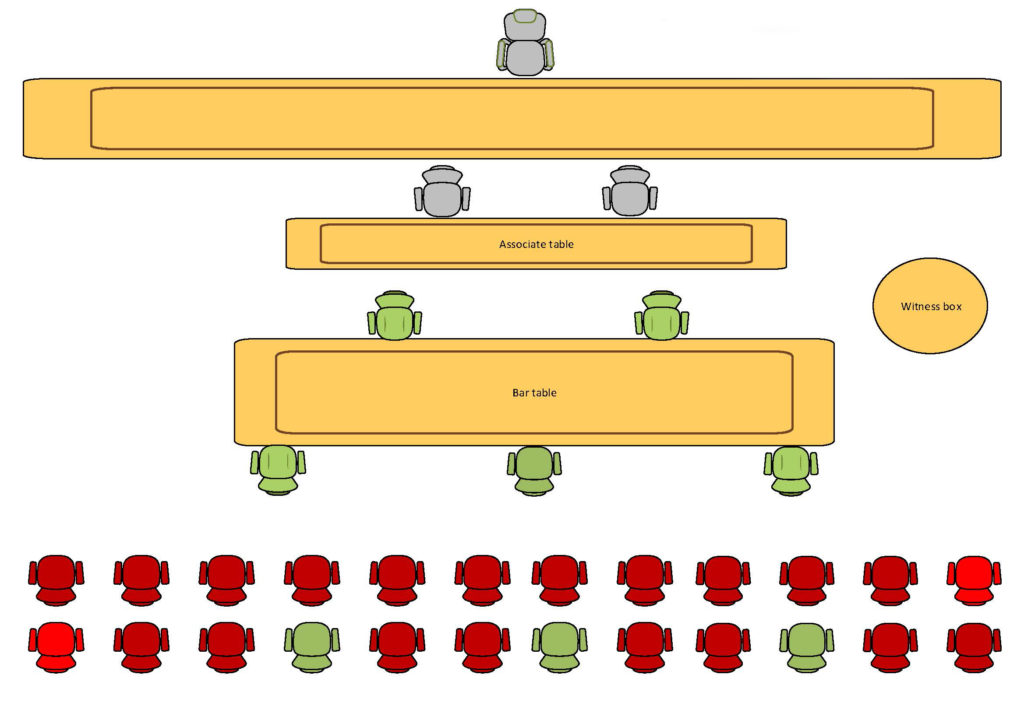“There will be ramifications for people who don’t act reasonably, and don’t act in the spirit of orders...
If they unreasonably withhold children, or they want to stop somebody from doing something they think will be unsafe for the child, they can file applications now electronically and they can have hearings electronically, with the court, we are open.”Chief Justice Will Alstergren
Further updated: The Queensland Government has clarified that the COVID-19 Coronavirus border restrictions do not apply where time is being facilitated for children between parents and siblings who do not live in the same household. The list of exempt persons previously referred to people required to comply with a Court Order.
However, this caused uncertainty as there are many families who have parenting plans or informal agreements, rather than a family law order.
The list of exempt persons now includes the following:
Persons entering Queensland on compassionate grounds or under compulsion of law
Any dependant individual, who:
a. ordinarily resides in another State or Territory; and
b. is required to travel to Queensland to reside with a carer or relative who resides in Queensland because a carer or relative is unable to care for them in their home State or Territory; or
c. for children under 18 years who do not live in the same household as their biological parents or siblings or one of their parents or siblings, continuing existing arrangements for access to, and contact between, parents and children and siblings, but not allowing access or contact with vulnerable groups or persons.
This means that you are not required to self-quarantine if you are crossing the border pursuant to a family law order, parenting plan or agreement.
However, you must self-quarantine if you have travelled overseas in the last 14 days or been to a COVID-19 hotspot in Australia.
Anyone crossing the Queensland border to facilitate time between children and another parent during the COVID-19 border restrictions, is recommended to apply for an border pass to avoid delays at the Qld border.
Updated: The Family Law Courts have now released questions and answers for parents related to COVID19 Coronavirus and the Chief Justice has issued information to guide parents and the profession.
Do I have to comply with Family Law Orders during COVID19 Coronavirus?
The Family Law Courts have made it clear that in most cases, family law orders must be complied with during the Coronavirus COVID19 pandemic.
In some exceptional circumstances non-compliance may be considered a reasonable excuse – but those situations will be the exception, not the norm.
If you are considering not complying with family law orders, book a fixed fee COVID19 Parenting advice consultation to obtain advice specific to your situation.
What if we have an agreement or parenting plan but no family law orders?
Physical distancing (social distancing) rules will not be breached by children moving from one household to another.
If you don’t have orders in place, you and the other parent/caregiver need to negotiate arrangements during the pandemic.
We can assist you to reach agreement via mediation or parenting coordination as well as providing specialist family law advice.
If you need to cross the Queensland border, we recommend obtaining an entry pass. If you are a Queensland resident returning to Queensland you do not require a pass.
Family Law Courts - Telephone and Video Conferencing to reduce Coronavirus risks
Most of the Family Law Courts’ (Federal Circuit Court and Family Court of Australia) work will be conducted by telephone and when it is possible, by video conferencing.
Face-to-face matters will only be conducted in court if the judge considers it to be an urgent matter.
What is ‘urgent’ is not specified, but we can expect that matters will be weighed up against other matters listed that day, and prioritised accordingly.
It will be possible to ask the court not to proceed by telephone if it is not practical or the matter is urgent and requires a face- to-face hearing.
If the court decides the matter needs to proceed by face-to-face hearing certain protocols set out below will apply.
If the court determines the matter is not urgent but cannot proceed by telephone then it will be adjourned or sent to dispute resolution.
Family Law Final Hearings (Trials)
All family law matters which are listed for a final hearing or trial in the next two months will be listed in a callover by telephone in the next two months.
The judge will determine if the matter is of high priority and should remain listed for hearing using the face-to-face protocol, or whether it should be adjourned or sent to dispute resolution.
Parties will be encouraged to use dispute resolution (e.g: mediation) using social distancing measures including video conferencing or shuttle mediations.
Face-to-face hearings will be listed for a maximum of 1.5 hours at a time.
This is likely to lead to an increase in the time it would take to hear a matter as usually the Family Law Courts usual sit for approximately five hours per day.
It is expected that the callover process may be repeated for matters listed for hearing in three and four months time.
Family Law Appeals
Appeals to the Full Court of the Family Court of Australia
For appeals listed until the end of May various arrangements apply including face-to-face, telephone and video appearances.
Significantly, self-represented parties and legal representatives will appear in person, and the judges will appear by video or telephone. The exception is the upcoming Adelaide appeals day, where one judge will be in the courtroom, and two other judges by video or telephone.
- Only one family law appeal will be listed per day.
- Some appeals will not be heard, even if they currently or will be shortly ready for hearing.
- Priority will be given to urgent matters.
- Representatives and self-represented litigants can request to attend by telephone. Whether that request is granted will depend on the circumstances and nature of the appeal.
- Legally represented parties can request to listen in by telephone.
- All appeal documents must be provided electronically.
Family Law Appeals to a single Judge and Applications in an Appeal
However, they will not exceed 1.5 hours of face-to-face court time.
Filing documents in the Family Law Courts
All family law applications must be filed on the Commonwealth Courts portal not the Registry, unless they are unable to be e-filed in which case they must be emailed. They cannot be posted or delivered.
- Any proposed consent orders or written submissions must be emailed to the court prior to a telephone hearing, and must also be sent in Microsoft Word format.
- Handing up of hard copy documents at a face-to-face hearing may not be permitted.
Family Reports and s11(f) Child Inclusive Conferences
Other matters may be sent to a Child Dispute Conference.
Family report interviews will proceed as arranged and will use social distancing principles.
Inspecting Subpoenaed documents at the Family Law Courts
Face to face protocols during the Coronavirus situation
Longer matters will be limited to 1.5 hours with cleaning between listings.
- The same matter cannot return on the same day – 1.5 hours per day is the maximum.
- No more than 8 people plus the judge and the associate can be in the court room at any one time.
- Parties are not allowed to enter before their matter is called.
The court has provided a diagram for where parties and legal representatives are to sit, so that they are at least 1.5 to 2 metres apart.

What will be the real impact of Coronavirus on matters in the family law system?
It is going to become more important for parties to use dispute resolution such as mediation to resolve their family law matters.
Even if your matter is currently listed with a hearing date for interim or final hearing, there is no guarantee that it will be heard on that date by way of a face-to-face hearing.
Even if it is heard face-to-face, it may not be heard in full at the Court, and may need to be continued by telephone.
These measures, which are designed to protect everyone from the Coronavirus and the spread of COVID-19, will inevitably result in further delays in the already backlogged Family Law Courts.
They are also likely to result in legal representatives needing to undertake more work prior to a hearing, to prepare written submissions, and draft orders, to provide to the court, to maximise the prospects of the judge being able to hear and determine the matter on the day of the hearing.
